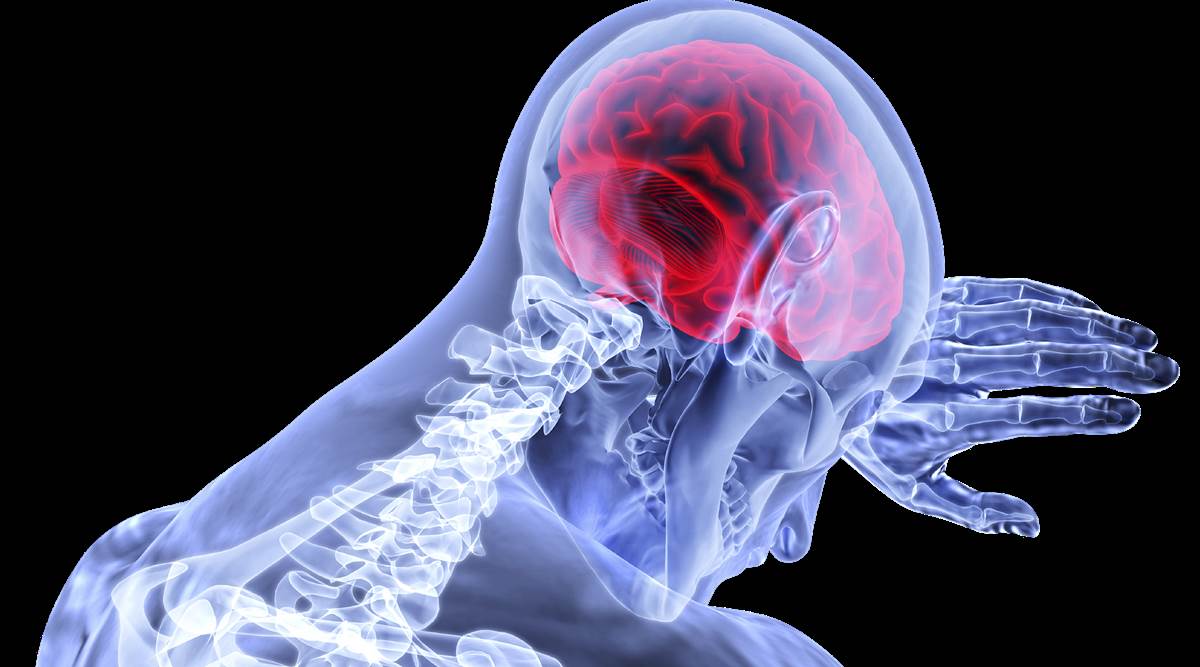World Stroke Day 2020: Beware! Work stress can increase the risk of getting a stroke
While a stroke can happen anywhere, at any time and to anyone, to reduce the risk, management of stress is essential

Life has become increasingly stressful these days, and for people working from home, finding the perfect work-life balance has become a chore. Many people are having to work overtime, too, so as to compensate for lost hours and looming deadlines. In this stressful time, it is necessary to strike a balance, failing to do which can affect your physical and mental health.
This World Stroke Day, Dr Gurneet Sawhney, Consultant, Neuro & Spine Surgeon, Fortis Hospital, Mulund tells indianexpress.com that the more a person stresses, the higher is their risk of getting a stroke. A stroke can leave a person physically disabled, leading to complete dependence on others for daily work; a disrupted communication can lead to more stress, anxiety, and even depression.
What happens in a stroke?
A stroke happens in the brain when it receives little or no supply of oxygen. The causes include leakage of blood into the brain, a clot in the artery supplying blood to the brain, or disruption of oxygen supply to the brain.
While a stroke can happen anywhere, at any time and to anyone, to reduce the risk, management of stress is essential. The reasons or causes of stress could be personal and/or professional. “Every individual must learn to cope with and manage stress. It is perfectly normal to acknowledge the stress and reach out for the support, love, and help from other people. It is equally normal to seek professional counselling, therapy, or support of family members, friends, and loved ones,” suggests Dr Sawhney.
ALSO READ | Sudden Cardiac Arrest Awareness Month 2020: Know about the most common symptoms
What happens to your body when you stress?
The doctor explains a step-by-step process:
– The nervous system releases more adrenaline and cortisol, which raise blood pressure and sugar levels.
– The musculoskeletal system contracts the muscles, leading to headaches, migraines, and body aches.
– The respiratory system increases the breathing rate, leading to hyperventilation and panic attacks.
– The cardiovascular system causes inflammation in coronary arteries and an increase in heart rate, along with chances of suffering a heart attack.
– The gastrointestinal system makes you consume more food, alcohol, tobacco, leading to heartburn, acid reflux, nausea, vomiting, constipation, diarrhoea, and so on.
“Recognising these signals and making a conscious effort to relieve stress is the only way out. At the mental level, the following tips and pointers go a long way in changing the attitude towards life and having a positive approach for the best interest of the individual,” the doctor says.
ALSO READ | Resistance to masks may have a connection with antisocial personality disorder, study finds
* Pay more attention to self. Question yourself regarding your mental, physical, and emotional health. Find ways and solutions to improve them in the best possible manner.
* Listen to the inner voice and pay attention to body signals.
* Set a deep breathing and meditation routine.
* Express gratitude and blessings for all the good things in your life, especially your family, friends, and nature.
* Learn to accept and be happy in situations.
* Let go of bygones.
* Budgeting is essential to stay positive in the current circumstances. Spend and save money according to priorities and needs.
* Focus and indulge in things and activities that relax and calm the mind.
ALSO READ | Watch out! Pandemic fatigue can catch you off-guard
“Work on physical health and switch over to a healthy, nutritious diet. Eat fresh food, fruits and have ample liquids. After all, the stomach is the second brain. A healthy stomach leads to a healthy mind. Today, the world is facing a stroke epidemic. It is likely that 1 out of 4 adults over the age of 25 years will suffer from a stroke. If individuals take appropriate and timely action, it can be prevented. If each individual consciously focuses on reducing work-life stress by healthy living and with the right balance of exercise, nutritious diet, and mental attitude, the risk minimizes by 90 per cent,” Dr Sawhney concludes.
For more lifestyle news, follow us: Twitter: lifestyle_ie | Facebook: IE Lifestyle | Instagram: ie_lifestyle
Source: Read Full Article


